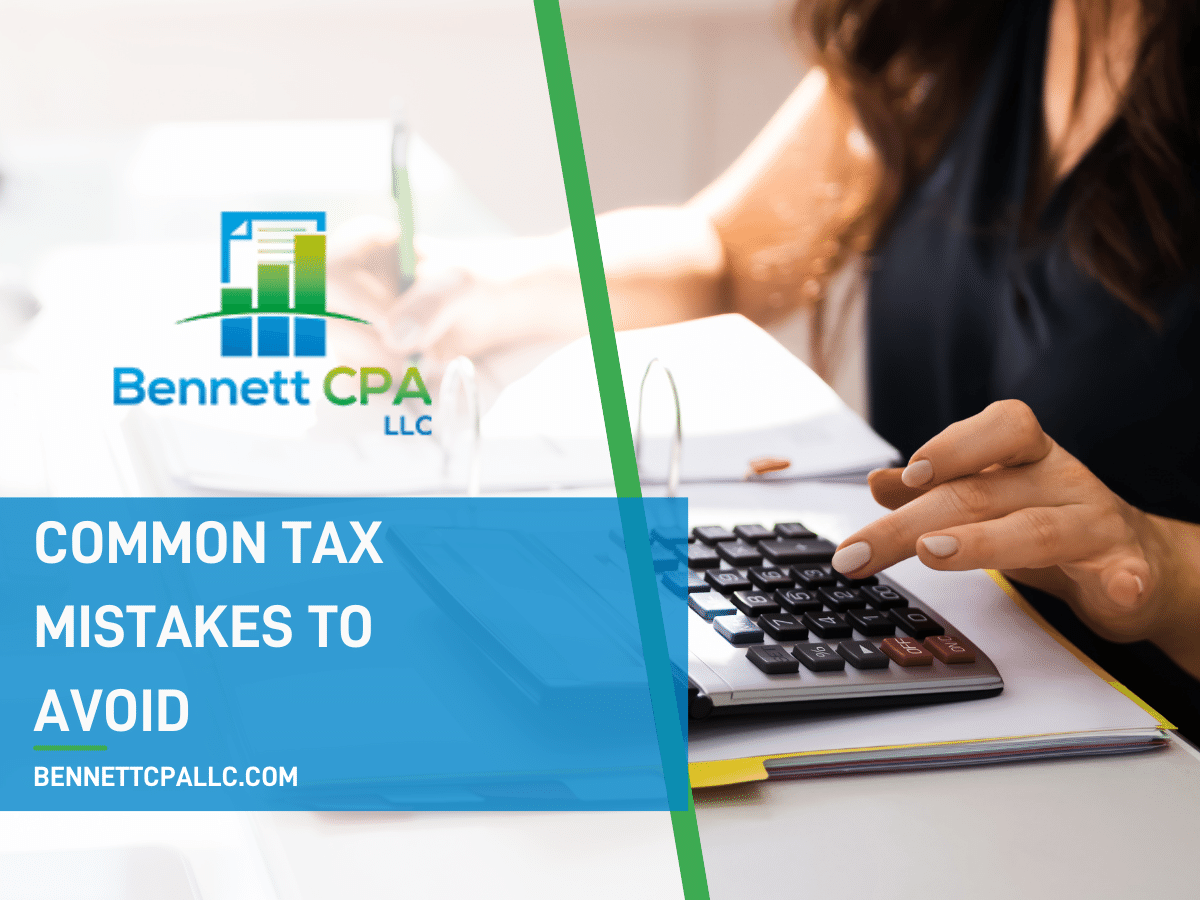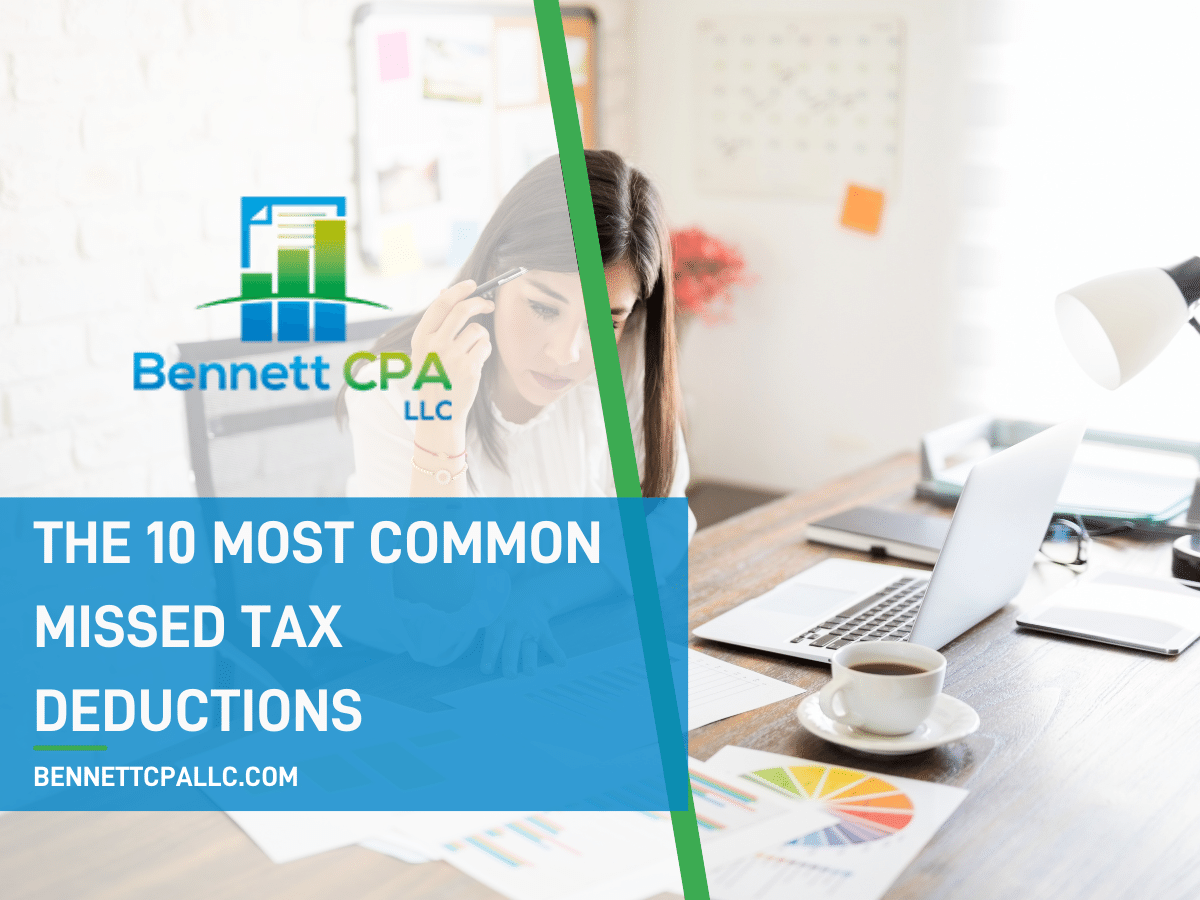One of the best ways you can minimize your tax liability is by claiming all of your deductions. While there are some tax deductions that are commonly known, there are others that many people miss when preparing their taxes. As a licensed CPA in Colorado Springs, I understand the struggle of trying to figure out which tax deductions you can claim. When people file their taxes, the ultimate goal is to owe as little money as possible or better yet, be eligible to receive a refund. At Bennett CPA, I will make sure to find all of the eligible deductions you can claim on your business taxes and your personal taxes. Some important tax deductions to be aware of include the following:
1. Charitable Gifts
Many taxpayers know they can deduct the large charitable gifts they donate each year. But even the little things add up, and you can deduct more than just the money or goods donated. You can also write off out-of-pocket expenses you incurred while gathering your charitable gifts.
For example, if you made baked goods for a charity fundraiser, you can deduct the cost of the ingredients you used. If you drove your car for charity, you can deduct 14 cents per mile. Make sure to save all of your receipts and itemize the costs throughout the year in case of an audit, and for your own personal records.
2. Student Loan Interest
In the past, students could only receive a tax break for paying loans if the students paid them off themselves. If parents or someone else paid a loan incurred by a student, no one received a tax deduction. However, a student may now be eligible for a tax deduction even if someone else made a payment towards their student loans. Students who are not claimed as dependents can qualify to deduct up to $2,500 of the student loan interest that was paid by themselves or by someone else.
3. Health Insurance Premiums
Insurance premiums can be incredibly high, and medical expenses can blow your budget. Generally, for 2020, medical expenses had to have exceeded 7.5% of your adjusted gross income in order for medical expenses to be claimed as an itemized deduction. If you are self-employed, however, and are responsible for your own health insurance, you might be eligible to deduct all of your medical premium cost. That amount can be taken off your adjusted gross income, rather than used as an itemized deduction.
4. Paying Your Nanny
Did you know you might be able to deduct the cost of a babysitter or nanny? You might qualify if you are paying a babysitter to watch your children while you are working or looking for work, or if you are a full-time student. In order to receive the deductible you will need to report your nanny or the company that they work for as well as the company’s tax ID number.
5. Refinancing Mortgage Points
When you refinance a mortgage, you can deduct mortgage points paid over the life of the loan. Mortgage points are fees paid directly to the lender at closing. In exchange, the homeowner receives a reduced interest rate. Each point costs 1% of your mortgage amount. The longer you own a home, the more points help you to save on interest over the life of the loan. As you refinance your mortgage, some of these points are deductible.
For example, if you have a 30-year mortgage, you can deduct 1/30th of points every year, or about $33 per $1,000 of the points you pay. This can sound like a small number, but the savings truly add up over time.
6. Lifetime Learning
Certain tax deductions are geared towards college students, including graduates. The Lifetime Learning Credit (LLC) can provide up to $2,000 a year, or 20% of the first $10,000 you spend each year on education after high school in order to further your education. One benefit of the Lifetime Learning Credit is that there is not an age restriction, so college students of any age may be eligible to claim this tax deduction.
7. Self-Employment Taxes
As a self-employed individual, the government requires you to pay 15.3% of your income towards social security and medicare taxes ordinarily paid by both the employee and employer. While this may seem like a large percentage, you can deduct the employer portion–which is 7.65%–from your income taxes.
Understand Tax Deductions With Bennett CPA
At Bennett CPA, we are here to help you with any of your tax needs. Whether you are interested in learning more about the child tax credit, or you are looking for a knowledgeable personal accountant to help you answer your tax questions, we are here to help you! By using a CPA, you can ensure you will not miss any eligible deductibles and can increase the amount you save on your taxes every year. If you are ready to take the next step in increasing your tax savings and minimizing your tax liability, contact us today.





